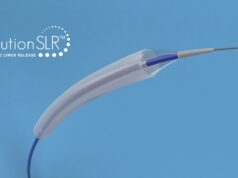
Royal Philips has announced the launch of the RADIQAL trial, a multicentre, randomised study seeking to demonstrate that the company’s new ultra-low dose technology can reduce overall patient radiation dose without affecting coronary procedure performance.
The trial will enrol 824 coronary artery disease patients across six hospitals in Spain, Czech Republic and the USA, with the first patient in the study enrolled at Aarhus University Hospital, Denmark.
“The ability to reduce radiation exposure without compromising procedural performance is a key priority in interventional cardiology,” said Javier Escaned (Hospital Clínico San Carlos, Madrid, Spain), principal investigator in the trial. “It is also important to achieve high-quality angiograms when using diluted contrast media as part of ultra-low contrast procedures. RADIQAL is designed to generate robust, real-world evidence on whether Philips’ new ultra-low X-ray dose technology can reduce radiation exposure for patients and staff without affecting the quality of coronary procedures.”
The RADIQAL trial evaluates radiation exposure, image quality and procedural performance between Philips’ new ultra-low dose technology and existing ClarityIQ technology, both integrated into the Azurion image-guided therapy system.
The new technology features an ultra-low dose protocol for coronary procedures, reducing X-ray exposure by 50% compared to even the lowest setting currently available on our Azurion systems with ClarityIQ. This technology has obtained CE marking and as such is cleared under the EU MDR regulatory framework.
“Reducing radiation exposure while maintaining or improving image-quality is one of the most important innovation goals in interventional cardiology,” said Darshan Doshi, head of medical & clinical at Philips Image-Guided Therapy Devices and Interventional Cardiologist at the Massachusetts General Hospital (Boston, USA). “Interventional cardiologists rely on low-dose, high-quality imaging for confident decision-making throughout multiple procedures each day. Also for patients, especially those with high body mass index or with complex conditions requiring repeat interventions, minimising radiation exposure is increasingly critical.”













